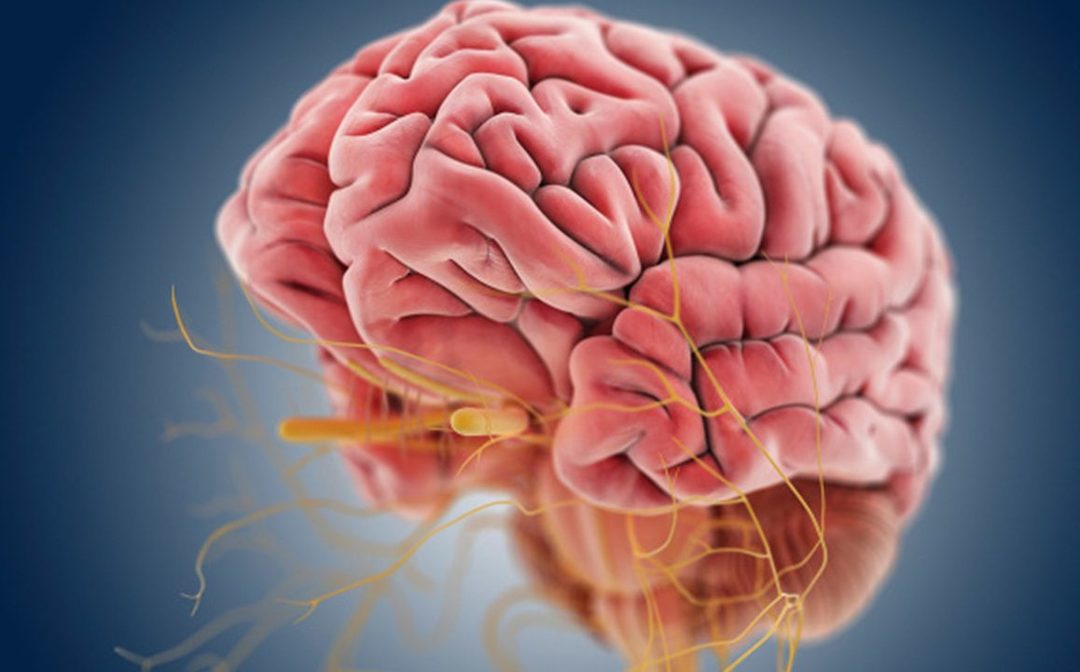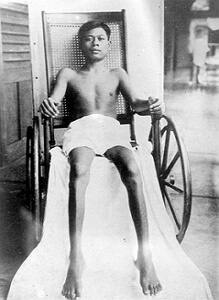Aphasia: what is it, causes, symptoms and treatment, prognosis
Content
- What is aphasia?
- Types of aphasia
- Broca's aphasia
- Aphasia Wernicke
- Global aphasia
- How common is aphasia?
- Symptoms and Signs
- Broca's aphasia symptoms
- Symptoms of Wernicke's aphasia
- Symptoms of global aphasia
- Causes and risk factors
- Language centre
- Brain damage
- Diagnostics
- Treatment
- Complications
- Prophylaxis
- Forecast
What is aphasia?
Aphasia Is a condition resulting from damage to areas of the brain responsible for the production and understanding of language. The most obvious signs of aphasia are people with speech and writing problems. In some cases, people with aphasia also find it difficult to understand speaking and writing.
Aphasia really means no language, and some people use the term dysphasia, which means abnormal language in people who have some language skills. The term "dysphagia" is increasingly being abandoned because it is too easy to confuse it with the word "dysphagia", which means swallowing disorder.
Common causes of brain damage that can cause aphasia include:
- strokewhich is considered the most common cause, as about 1 in 3 people experience some degree of aphasia after a stroke
- severe head injury
- a brain tumor
- progressive neurological conditions (conditions that over time cause progressive damage to the brain and nervous system, such as Alzheimer's disease)
Types of aphasia
The three most common types of aphasia are:
- Broca's aphasia, also called expressive or motor aphasia
- Wernicke's aphasia, also called "receptive" or "sensory" aphasia
- Global aphasia, which is a combination of the two.
They are described below.
Broca's aphasia
Broca's aphasia is when a person has difficulty speaking and manages to assemble only a small number of words into short, intermittent sentences. However, you can usually understand the meaning of their speech. For example, a person with Broca's aphasia might say, "Do you want... coffee... no... milk." In severe cases, people may not have any useful words at all or may be dumb.
Aphasia Wernicke
Wernicke's aphasia is when a person can speak normally and use long, complex sentences, but the real words they use don't make sense, or they include meaningless words in their speech. They also cannot understand what is being told to them or follow simple commands.
Many people with Wernicke's aphasia are often unaware that their spoken language does not make sense to others, and they may become angry or upset about the lack of understanding manifested by others.
Global aphasia
Global aphasia is the most severe form of the disease. Someone with this condition has difficulty with all forms of communication, including speaking, reading, writing, naming objects or people correctly, and understanding other people's speech.
How common is aphasia?
Aphasia is one of the most common brain disorders.
Most people with aphasia are over 65 years of age. This is because stroke and common progressive neurological conditions such as Alzheimer's disease or other types of dementia tend to affect people over the age of 65.
Aphasia caused by a brain tumor or serious head injury can affect people of all ages, including children.
Symptoms and Signs

In cases where aphasia was caused by a sudden brain injury, such as a stroke or severe head injury, symptoms usually develop immediately after the injury.
In cases where gradual damage to the brain occurs as a result of a condition that worsens over time, such as dementia or a brain tumor, symptoms may develop gradually.
Read also:Asthenic syndrome: symptoms, causes, diagnosis, treatment
Broca's aphasia symptoms
People with Broca's aphasia typically have the following signs and symptoms:
- slow and choppy speech;
- they may struggle to pronounce certain words, such as the names of objects, places, or people;
- the content of their speech is usually reduced to basic elements and contains only some basic nouns and verbs, for example, "I want to drink" or "go to town today";
- in severe cases, they may not have a usable language.
A person with Broca's aphasia may understand spoken language to some extent, but has difficulty understanding grammar. For example, people may not be able to tell the difference in meaning between the words "Masha hit the naughty boy" and "The naughty boy hit Masha."
The ability to read is usually affected as well. For example, they can assign different meanings to written words, for example, read "time" when the word is actually "clock". They may also lose the ability to pronounce the written words in their head.
Additional symptoms not directly related to speech and language but may occur in people with Broca's aphasia include:
- inability to control facial muscles and one or both limbs;
- limb weakness on one side of the body (almost always on the right side).
Symptoms of Wernicke's aphasia
A person with Wernicke's aphasia typically has the following signs and symptoms:
- They can speak fluently using long sentences, but their speech lacks meaning and may contain inappropriate or meaningless words.
- People with Wernicke's aphasia may not be aware of their language problems, especially soon after a stroke, and may become upset that other people cannot understand them. However, they can understand their problems if they present evidence such as video or audio recording of the conversation.
- They may have difficulty understanding or be unable to understand spoken language.
- Some people also have similar difficulties in reading written language.
- Their ability to write is affected in the same way as their ability to speak, as they can write freely, but what they write makes little or no sense.
Additional symptoms may include:
- some loss of vision;
- difficulty with arithmetic, such as adding, subtracting, multiplying, or dividing numbers - a symptom called "dyscalculia" by doctors;
- difficulties with spatial orientation, i.e. the ability to accurately judge where you are in relation to other physical objects;
- loss of limb control.
Symptoms of global aphasia
People with global aphasia usually have more brain damage, so they often have symptoms of both Brock's and Wernicke's aphasia. This can cause problems with all aspects of communication, including:
- conversation;
- understanding the speech of other people;
- the names of objects, people and places;
- repetition of someone else's speech;
- reading and writing.
Additional symptoms may include:
- paralysis of the right side of the body;
- some loss of vision in the right visual field of both eyes;
- loss of control over your limbs;
- problems with pronouncing certain sounds and words, which is associated with difficulties in controlling the mouth, tongue and larynx.
Causes and risk factors

Aphasia is caused by damage to parts of the brain that are responsible for:
- talk;
- understanding others;
- reading and writing.
Read also:Sleep paralysis (old witch syndrome)
Collectively, these parts of the brain are known as the language center of the brain.
Language centre
The language center is not the only area of the brain. It is a network of specific areas of the brain that work together like a computer network.
The Language Center consists of the following areas:
- Broca's area responsible for speech production;
- Wernicke's area of speech and writing comprehension;
- the sensory cortex, which is responsible for processing various signals the body receives, such as sounds (for language) and images (for reading);
- the auditory cortex, which is responsible for converting real physical sounds of spoken language into meaningful information;
- the motor cortex, which is responsible for controlling the various parts of the body used to generate speech, such as the muscles, tongue, and larynx.
In the past, it was believed that damage to a specific part of the brain would always lead to a certain type of aphasia, for example, damage to Broca's area always leads to Broca's aphasia. However, it is currently believed that the way the language center operates is less straightforward than this.
Damage to certain areas of the language center does not always lead to the expected symptoms. In addition, the consequences of brain damage can vary greatly from person to person, making them unpredictable.
Damage to many areas of the brain usually results in more serious types of aphasia, such as global aphasia.
Brain damage
Causes that can damage the brain include:
- stroke: during a stroke, the brain is deprived of blood and oxygen, which leads to the death of brain tissue;
- severe head injury: for example, an injury resulting from a traffic accident or a serious fall from a height;
- brain tumor: when abnormal cell growth occurs inside the brain;
- health conditions that cause progressive brain damage, such as Alzheimer's disease, other forms of dementia or more rare conditions such as progressive supranuclear palsy or corticobasal degeneration (two conditions associated with both physical and mental impairment as a result of brain damage brain);
- infections that affect the brain, such as meningitis (an infection of the outer layer of the brain) and encephalitis (an infection of the brain itself), although this is a much rarer cause of aphasia.
Diagnostics
Aphasia is usually diagnosed by a speech therapist. There are several tests used to assess all aspects of a person's communication skills.
These types of tests include simple exercises such as asking the person to name as many words as possible, starting with the letter A, or asking them to name objects in the room. The results can then be used to draw up a detailed picture of a person's linguistic capabilities.
Imaging techniques can then be used to assess the extent of any brain damage. The two most widely used types of tests for the diagnosis of aphasia are:
- computed tomography (CT), where a series of X-rays are used to create a detailed, three-dimensional image of the brain
- magnetic resonance imaging (MRI), in which strong fluctuating magnetic fields are used to produce a detailed image of the inside of the brain.
Treatment

Most cases of aphasia can be improved with treatment, even in severe cases of the global form of the disease. However, a complete return to pre-aphasic levels of communication is not always possible.
In the treatment of aphasia, as in any other neurological disease, the possibility of using pathogenetically based therapy plays a dominant role. Only after a fully-fledged diagnostic examination can a targeted therapy be prescribed.
Read also:Arachnoiditis
First thing regardless of the form of the disease, the elimination of the life-threatening factor is carried out. Intensive therapy measures are carried out, the patient is stabilized, and only after that the stage of aphasia treatment and subsequent rehabilitation begins.
In the treatment of aphasia, it is important to activate the metabolic imbalance that has arisen in the brain as quickly as possible. For this, the following groups of drugs are used:
- Cerebroprotectors and nootropics: Piracetam, Nootropil, Cerebrolysin.
- Vascular drugs: Octavegin, Vinpocetine and analogues.
- B vitamins, natural antioxidants and neuroprotectors.
- Anticoagulants or coagulants, depending on the form of vascular lesion.
A very important point is carrying out physiotherapy procedures. Therapeutic electrophoresis, magnetotherapy, acupuncture, therapeutic massage and physical education are used. All these methods improve the effectiveness of the main therapy and accelerate the recovery processes.
Complications
- Depression.
Since losing the ability to communicate can be a devastating experience, depression is a common complication of aphasia. In addition, many conditions associated with the disease, such as stroke or Alzheimer's disease, can alter a person's brain chemistry, making a person more vulnerable to depression.
- Catastrophic stress response.
Many people with aphasia experience recurring episodes of what is called a catastrophic stress response. This is when a person suddenly experiences an overwhelming feeling of frustration, anger, depression, or general feelings about not being able to handle their immediate situation.
Signs of a catastrophic response include:
- anxiety;
- aggression;
- crying or uncontrollable laughter;
- screams;
- stubbornness.
A catastrophic reaction is often triggered when a person with aphasia is acutely aware of their communication difficulties. Therefore, this can happen at the beginning of the course of speech and language therapy.
If someone close to you is experiencing a catastrophic reaction, you should remain as calm as possible and try to convince them that these feelings will pass and that everything will be fine.
Prophylaxis
There is no guaranteed way to prevent aphasia. However, there are some general lifestyle guidelines that can reduce your risk of developing conditions associated with aphasia, such as Alzheimer's disease (or another form of dementia) or stroke.
For example, you should:
- quit smoking (if you smoke);
- avoid drinking large amounts of alcohol;
- Eating a healthy, balanced diet with at least five servings of fruits and vegetables every day;
- use a combination of exercise and calorie-controlled diets to achieve a healthy weight, which is especially important if you are overweight or obesity;
- exercise for at least 30 minutes every day, because it will improve physical and mental health;
- stay mentally active, such as reading, writing.
Forecast
The prognosis of people with aphasia depends on the cause of the disease, the severity of the primary brain injury, and the severity of the symptoms. Depending on these factors, the prognosis can range from good to very poor.
However, most people with aphasia will recover at least to some extent, and many will recover completely. Even if aphasia persists, this does not necessarily mean that a person cannot live an independent and meaningful life.
The outlook for people with aphasia associated with progressive neurological conditions is poor because there is currently no there is an effective method to repair or prevent ongoing brain damage associated with these types states.



